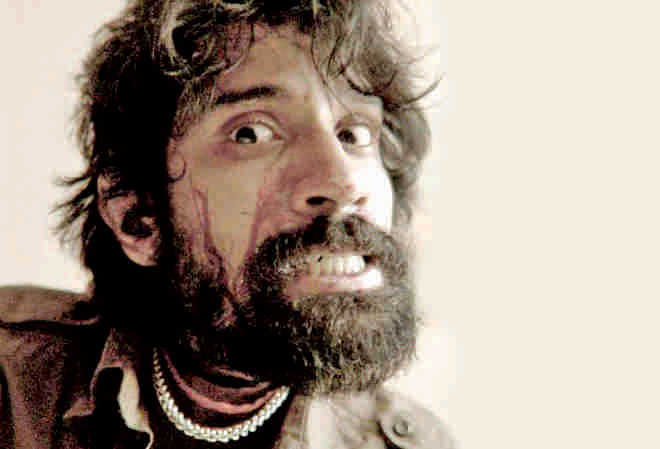Ten Things You Didn't Know about <br> ANIMESH AICH

Animesh Aich is a well-known director and script writer of Bangladesh. He has worked on many television dramas and achieved many awards including 'Meril-Prothom Alo Award' in 2004, and is busy working on his second movie 'Zero Degree'.
How did you enter the media industry?
I was involved in group theatre while studying Fine Arts. Later on, I came to work for Adcomm Limited, an advertising company, as a copy writer. The fact is, I, along with some other contemporary directors like Mostafa Sarwar Farooki, Tarek Shahriar, Nurul Alam Atique and few others used to hang out in a place called Jolchobi where we used to think about contemporary television productions and other stuff. It was back then in 1998-1999 when the first private television channel in Bangladesh, Ekushey Television Ltd, was about to launch. Later on, I worked as an Associate Art Director in 'Cycle er Dana'. Thus began my career in the media industry.
What was your first production as a director?
I directed a television drama named 'Kufa' in the year 2002. That was basically my first production. Later on, I directed another television drama named 'Chor Eshe Bhul Korechilo' in 2004, which ran very successful. It was awarded the 'Meril- Prothom Alo Award' in three categories including the best director in the same year.
What are some of your favorite movies and television productions?
I watch a lot of movies and my list of favourites is very long. It is very tough for me to name some specific movies or television shows. However, I can remember Jafar Panahi's 'Offside' right now. Besides, 'Schindler's List' by Steven Spielberg, 'Ghore Baire' by Satyajit Ray, 'Titli' by Rituparno Ghosh, and 'Meghe Dhaka Tara' by Rithik Gothok are some of my favorite movies.
Who have you enjoyed working with the most?
In my career as a director, I have worked with many senior and junior artists. It is very tough to say few names but I can mention renowned artists Abul Hayat, Shahiduzzaman Selim and Jaya Ahsan. Besides, Dipak Sumon and Asna Habib Bhabna are very good artists who I liked working with among the junior artists.
What is your most embarrassing memory as a director? Did you ever make a mess of things?
Not really. Usually I don't mess up things. The more experience I gain, the more tightly run my production sets become. However, I remember one incident which could have been lethal. I was working in the movie 'Guerilla' where I needed to work with a train scene. As our shooting went on, we directed to move the train while I will be taking shots from a narrow rail bridge. It was a prior direction that the train will stop at certain points so that I can move easily. However, it did not stop at the point and me and Nasiruddin Yousuf Bachchu had to jump over to save ourselves! Scary memory!
What are some of the common challenges or problems you face as a director in Bangladesh?
Our main challenge is financial. We lack investment in our media industry. Sometimes we cannot materialize our aspiration of making good movies due to small budgets. Again, the producers ask us to produce things within a short period of time which is a challenge for us all. Lack of good scripts is another problem, although that is not a problem in my particular case since I write my own scripts. Moreover, the value of creative work is low in our country compared to most other countries.
Most of our movie directors started their direction career primarily from television production. Do you think television productions are starting point to get to movies?
Actually, film makers in our country shifted their focus to television production due to the lack of investment in our movie industry during 1993-1995. It is a fact that the number of our movie theatres were decreasing rapidly while the theme and plot of our movies were becoming flat due to proper investment and planning. Therefore, the contemporary directors are not television producers; rather they just shifted their focus for the time being. They were representing the story of a movie in the television screen due to the lack of chances and advantage. I think, with the arrival of opportunity they are showing their talent in movie making now.
What would be your advice for those who want to enter the world of directing television dramas?
I would say that people who want to enter the world of direction need practical education of film making and direction along with their academic education. One has to read a lot of literary books, learn the ABCs of music and dance, and gather the basic knowledge on fine arts and culture. Besides, watching a lot of films and television productions will help enrich the mind.
Where do you see yourself ten years from now? Do you always want to be a director?
I really don't know. I would like to be as I am now. I would like to work in the media sector as a director. There can be changes according to the demand of time. But I like working here and I wish to continue this career.
Would you like to say few words to the viewers?
I would like to ask them to watch a lot of good movies that talks of our culture and tradition, our story and lifestyle. I expect that the viewers would be able to differentiate our good movies from low graded Indian movies without being biased. Recently, I am working on my second movie 'Zero Degree' which is coming soon. I would like to invite all viewers to watch the movie.

 For all latest news, follow The Daily Star's Google News channel.
For all latest news, follow The Daily Star's Google News channel. 



Comments